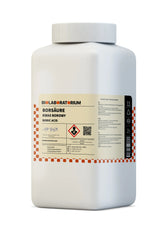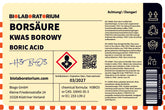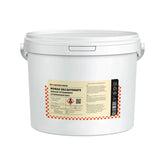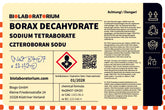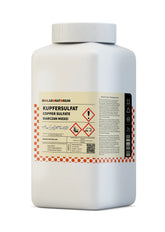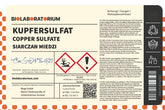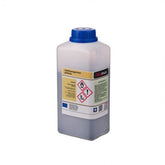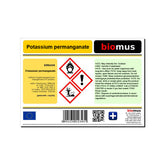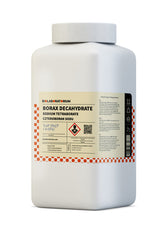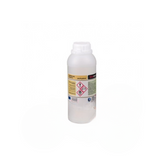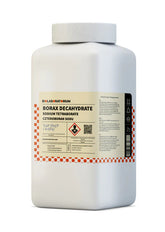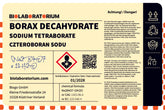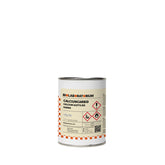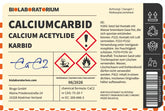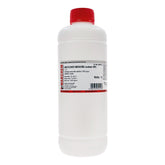What is citrus pectin and what is it used for in chemistry?
Citrus pectin is a natural polysaccharide obtained from the peels and seeds of citrus fruits such as oranges, lemons, and grapefruits. It is an important component of the cell walls of these fruits and serves various functions there. In chemistry and the food industry, citrus pectin has diverse applications, which we will explore in more detail in this article.
What is citrus pectin?
Citrus pectin belongs to the group of pectins, a class of polysaccharides found in the cell walls of plants. It mainly consists of galacturonic acid units linked by α-1,4-glycosidic bonds. Additionally, residues of rhamnose, arabinose, and galactose may be present.
The exact composition and structure of citrus pectin vary depending on the origin of the fruits, ripeness stage, and extraction method. Basically, two main forms can be distinguished:
- High-methoxyl pectin: Here, more than 50% of the galacturonic acid units are esterified.
- Low-methoxyl pectin: Here, less than 50% of the galacturonic acid units are esterified.
The degree of esterification significantly influences the properties and application possibilities of citrus pectin.
Properties of citrus pectin
Citrus pectin has a number of interesting properties that make it attractive for many applications in chemistry and industry:
Gel formation
One of the main characteristics of citrus pectin is its ability to form gels in aqueous solutions. The degree of esterification, pH value, and presence of sugar play a decisive role. High-methoxyl pectin forms gels at low pH and high sugar content, while low-methoxyl pectin can form gels even at neutral pH and low sugar content.
Viscosity increase
Citrus pectin can significantly increase the viscosity in aqueous solutions. This is due to its ability to form long polymer chains that influence the flow behavior. The viscosity effect depends on the molecular weight and concentration of the pectin.
Emulsifying Properties
Citrus pectin can act as an emulsifier and helps stabilize oil-water emulsions. This is due to its amphiphilic nature - it has both hydrophilic and hydrophobic groups.
Water Binding Capacity
Pectins can bind large amounts of water and swell. This is due to their hydrophilic nature and the ability to form hydrogen bonds.
Biodegradability
As a natural polysaccharide, citrus pectin is biodegradable and environmentally friendly.
Applications of Citrus Pectin
Due to these diverse properties, citrus pectin is used in numerous industries:
Food industry
In the food industry, citrus pectin is a widely used additive. It serves as a gelling agent in jams, preserves, and jellies, stabilizes emulsions in salad dressings and mayonnaise, and increases viscosity in dairy products like yogurt. Furthermore, it is used as a thickener in beverages.
Pharmacy and cosmetics
In pharmacy and cosmetics, the gelling properties of citrus pectin are used to manufacture tablets, capsules, and ointments. It is also used as a binder, emulsifier, and viscosity regulator in creams, lotions, and other personal care products.
Chemical Industry
In the chemical industry, citrus pectin serves as a thickener, emulsifier, and stabilizer in a variety of products. Examples include varnishes, paints, adhesives, sealants, and fire-fighting foams. Additionally, it is used in the paper and textile industries.
Agriculture
In agriculture, the ability of citrus pectin to bind heavy metals and pesticides is utilized. Therefore, it can be used as a soil conditioner and plant protection agent.
Medical applications
In medicine, citrus pectin is used as a dietary fiber due to its swelling properties to regulate bowel movements. It is also being researched as an antioxidant and for lowering cholesterol levels.
Safety and Regulation
Citrus pectin is a natural, food-grade product that is approved as a food additive in many countries. It is considered safe for human consumption and is approved in the EU under number E440 as a thickener and gelling agent.
When used in chemicals and industrial products, the usual safety regulations must be observed. This includes careful handling to avoid dust formation and inhalation. Otherwise, citrus pectin is an environmentally friendly and sustainable material that can provide valuable services in many industries.
Conclusion
Citrus pectin is a versatile natural polysaccharide with excellent properties such as gelling, viscosity enhancement, and emulsification. Therefore, it is used in numerous industries - from food to cosmetics to chemical products. With its biodegradability and environmental friendliness, citrus pectin is an attractive raw material for the future.

